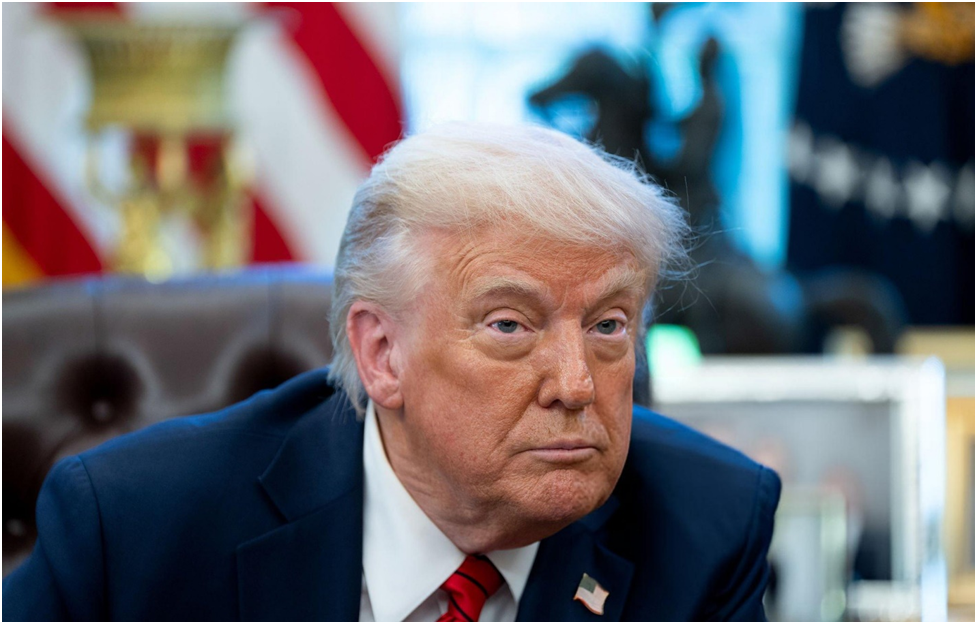Tyrants, it seems, are doomed to come to a sticky end. Throughout history, powerful autocrats have met their downfall in ways both bloody and humiliating. Richard III was slain in battle, his body thrown ignominiously in a grave. Coriolanus, a Roman general turned tyrant, met a similarly tragic fate. In the modern era, dictators like Saddam Hussein were captured and hanged, Slobodan Milosevic died in a prison cell, and Muammar Gaddafi was dragged from a drainage pipe and executed in a gruesome fashion.
Tyranny, from the Greek word túrannos meaning “absolute ruler,” often feeds off a ruler’s hubris — a toxic mix of arrogance and self-belief that leads them to believe they are untouchable. Yet, history shows that hubris almost always leads to nemesis. Tyrants, whether of the past or the present, inevitably face a reckoning. And in the case of the current US president, Donald Trump, his downfall — though still a matter of speculation — appears increasingly inevitable. What remains to be seen is how it will unfold.
While it may seem inappropriate to directly compare Trump to the likes of Saddam Hussein or Muammar Gaddafi, the essence of tyranny — a leader who prioritises their own interests above the welfare of others — is undeniably present. Trump’s legacy, marked by corruption, divisiveness, and a reckless disregard for the consequences of his actions, fits squarely within the pattern of autocratic rulers who eventually overstep and suffer the consequences.
But Trump’s case is unique. While his predecessors built their regimes on political, military, or ideological control, Trump’s form of tyranny is powered by a combination of media manipulation, populist rhetoric, and a complete lack of self-awareness. His presidency did not solely rely on the traditional mechanisms of state power. Instead, it thrived on sowing division, spreading misinformation, and cultivating a base of unwavering supporters who believe his rhetoric, no matter how false or damaging.
It is perhaps this very nature of Trump’s leadership that will eventually lead to his undoing. In fact, the very traits that made him a populist hero to millions could be the catalyst for his fall. His brazen hubris, his disregard for convention, and his inability to heed warnings from those around him — these are the same characteristics that have led countless tyrants before him to ruin.
Trump’s presidency has been marked by incompetence, scandal, and an obsession with self-preservation. His administration saw widespread corruption, the undermining of democratic norms, and a disregard for the rule of law. His repeated attempts to stoke division, coupled with his encouragement of insurrectionist violence on January 6, 2021, demonstrated just how far he was willing to go to cling to power.
Now, facing mounting legal challenges and public scrutiny, Trump’s grip on power seems increasingly tenuous. The very same people who once rallied behind him are beginning to see cracks in the façade. The once-solid base of support is now fractured, with former allies distancing themselves and his public image tarnished by scandals, lawsuits, and an increasingly hostile political environment. The narrative of invincibility that Trump built for himself is slowly being eroded.
So, how will Trump be dethroned? The answer, it seems, lies in the self-destructive power of his own behaviour. Tyrants often fall because they overreach, making mistakes that alienate those who once supported them or fail to anticipate the consequences of their actions. For Trump, the tipping point could come in the form of a combination of legal battles and political pressure. His attempts to subvert democracy during the 2020 election, coupled with his involvement in inciting violence on January 6, have opened the door to criminal investigations. These investigations may ultimately lead to charges that could strip him of his ability to run for office again — a scenario that would likely spark a dramatic fall from grace.
Moreover, Trump’s inability to adapt to a changing political landscape is another factor that will contribute to his downfall. His divisive rhetoric and populist appeal may have worked in the past, but as the nation becomes more politically polarised, his message is starting to lose its power. The increasing distance between Trump and the mainstream of American politics, combined with his growing list of legal troubles, will likely culminate in his exit from the political stage.
But Trump’s fall will not be the end of the story. The consequences of his presidency will continue to reverberate for years to come. The damage done to the institutions of democracy, the media, and political discourse will take time to repair. His supporters will not easily abandon their belief in him, and his legacy will continue to shape American politics long after he has gone. However, as history shows, all tyrants eventually meet their end — and Trump, too, will be no exception.
In the end, it may not be the media, the courts, or the political establishment that topples Donald Trump. It will be his own overconfidence, his inability to recognise when the ground is shifting beneath him, and his refusal to acknowledge the reality of his own limitations. The self-destructive power of hubris is a force that even the most powerful leaders cannot escape.






